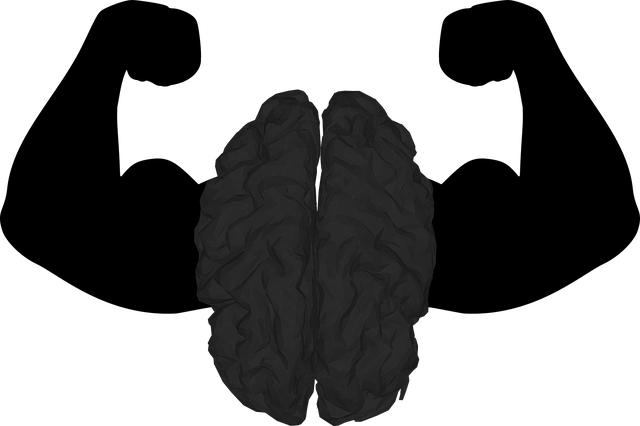Fatigue, a complex condition rooted in cellular issues, can be addressed through cutting-edge regenerative solutions like stem cell therapy, PRP (Platelet-Rich Plasma) therapy, mitochondrial health therapy, and peptide therapy. These advanced treatments aim to revitalize cells, enhance energy production, and provide lasting relief from chronic fatigue by focusing on cellular repair and rejuvenation. Key keywords include: regenerative solutions for fatigue, stem cell therapy for fatigue, energy restoration treatments, mitochondrial health therapy, PRP therapy for fatigue, cellular rejuvenation for energy, and peptide therapy for fatigue recovery.
Fatigue is a pervasive condition affecting millions, often with complex root causes that extend beyond simple tiredness. This article delves into the intricate world of fatigue, exploring its multifaceted origins and uncovering innovative solutions through cellular repair techniques. We examine the role of stem cell therapy, PRP treatments, and peptides in promoting energy restoration, aiming to revolutionize approaches to combating chronic fatigue. By focusing on mitochondrial health and personalized rejuvenation, these cutting-edge strategies offer hope for long-lasting vitality.
- Understanding Fatigue: Unveiling the Complex Root Causes
- The Role of Cellular Repair in Energy Restoration
- Exploring Regenerative Solutions: Stem Cells, PRP, and Peptides
- Personalized Therapy Approaches for Long-Lasting Vitality
Understanding Fatigue: Unveiling the Complex Root Causes

Fatigue is a complex and multifaceted condition that goes beyond simple tiredness. It’s a symptom with deep-rooted causes, often stemming from cellular level issues. Understanding these root causes is crucial in exploring effective regenerative solutions for fatigue. From mitochondrial health to cellular rejuvenation, various factors contribute to this persistent state.
Mitochondria, often referred to as the powerhouses of cells, play a pivotal role in energy production. Dysfunction here can lead to reduced energy levels. Similarly, stem cell therapy for fatigue and PRP (Platelet-Rich Plasma) therapy offer promising regenerative approaches, promoting cellular repair and enhancing mitochondrial function. Peptide therapy for fatigue recovery also gains traction, targeting specific biological pathways to restore energy and vitality. These advanced treatments, alongside strategies like optimizing mitochondrial health therapy, provide a holistic approach to addressing fatigue at its core.
The Role of Cellular Repair in Energy Restoration

Cellular repair plays a pivotal role in addressing the root causes of fatigue by restoring energy at its most fundamental level—the cell. Fatigue often arises from cellular dysfunction, where mitochondria, our cells’ powerhouses, become less efficient or damaged over time. This can lead to reduced adenosine triphosphate (ATP) production, the primary source of energy for bodily functions. Regenerative solutions for fatigue, such as stem cell therapy and mitochondrial health therapies, directly target these issues.
Stem cell therapy for fatigue introduces new, healthy cells into tissues to replace old or damaged ones, promoting cellular rejuvenation for energy. PRP therapy for fatigue utilizes a patient’s own platelet-rich plasma, which contains growth factors that stimulate healing and repair. Peptide therapy for fatigue recovery works by signaling specific cellular responses to enhance ATP production and overall energy levels. These treatments offer promising avenues in combating chronic fatigue, offering more than temporary relief with lasting benefits.
Exploring Regenerative Solutions: Stem Cells, PRP, and Peptides

Fatigue can stem from a complex web of factors impacting mitochondrial health and overall cellular function. This is where regenerative solutions like stem cell therapy, platelet-rich plasma (PRP) treatment, and peptide therapies come into play as potential game-changers in energy restoration.
Stem cells hold immense promise due to their ability to differentiate into various cell types, promoting cellular rejuvenation and enhancing the body’s natural repair mechanisms. PRP therapy harnesses the power of a patient’s own blood to stimulate tissue regeneration and improve mitochondrial function. Peptide therapies, on the other hand, offer targeted support by mimicking natural peptides involved in energy production and cellular communication. These innovative treatments are gaining traction as effective ways to address fatigue, offering promising pathways towards revitalizing both body and mind.
Personalized Therapy Approaches for Long-Lasting Vitality

Personalized Therapy Approaches for Long-Lasting Vitality
In today’s fast-paced world, fatigue has become a common concern, often stemming from underlying cellular damage and mitochondrial dysfunction. Addressing these root causes requires innovative regenerative solutions that go beyond traditional treatments. Stem cell therapy for fatigue, energy restoration treatments, and mitochondrial health therapies offer promising avenues to rejuvenate cellular function. By harnessing the body’s natural healing mechanisms, these approaches aim to restore vitality and combat chronic fatigue.
One such advanced method is Platelet-Rich Plasma (PRP) therapy for fatigue, which utilizes the patient’s own blood to accelerate tissue repair and rejuvenation. Peptide therapy for fatigue recovery also gains traction, as specific peptides can target various cellular processes to boost energy levels. These personalized therapy approaches not only address symptoms but also focus on long-term health by promoting cellular rejuvenation for energy, ensuring folks can regain their zest for life in a sustainable manner.
In addressing the multifaceted nature of fatigue, focusing on cellular repair offers a promising path to restoring energy and vitality. By understanding the intricate root causes, from mitochondrial dysfunction to cellular aging, we can harness the potential of regenerative solutions like stem cell therapy, PRP treatment, and peptide therapies. These innovative approaches aim to rejuvenate cellular function, enhance mitochondrial health, and provide long-lasting strategies for combating fatigue. Embracing personalized therapy ensures that individuals receive tailored care, addressing their unique energy restoration needs in a holistic manner.
